How to fix a squeaky door in a few simple steps
Here’s how to fix a squeaky door quickly and easily
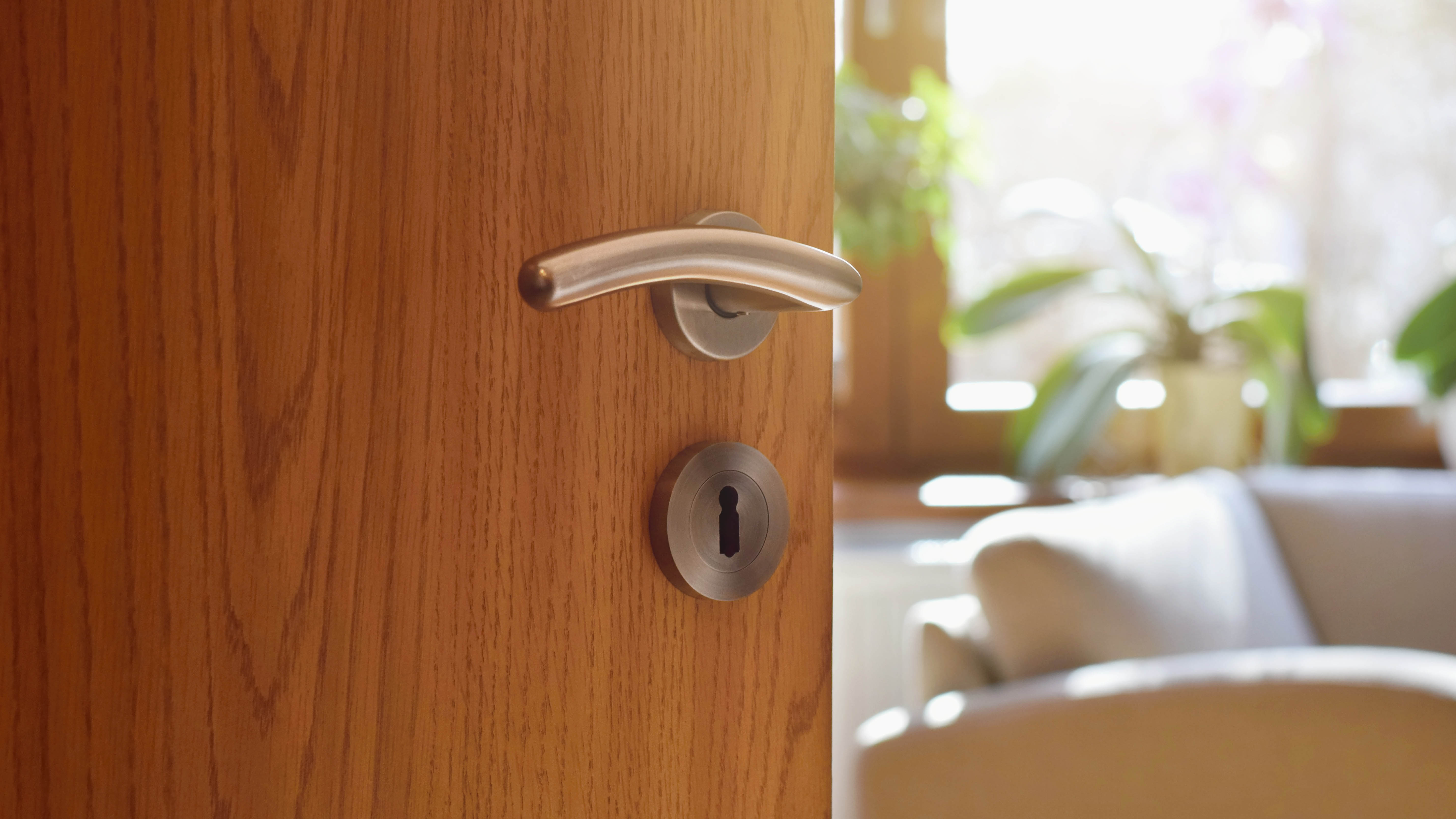
Need to know how to fix a squeaky door? There’s nothing more infuriating than dealing with a squeaky hinge. That little bit of noise every time it swings open or closed can be incredibly irksome and even problematic, especially if you have a sleeping baby you don’t want to wake up or a work call you don’t want to get disturbed.
Paper towel
Lubricant (preferably lithium grease)
Hammer and nail
Cotton-tipped swab
Household cleaner
Squeaks can occur for multiple different reasons, with the most common being dirt, dust, or metallic shards entering the hinge and creating some friction from within. Fixing a hinge is fairly simple and just requires a bit of cleaning or some extra added grease. Here’s how to fix a squeaky door.
How to fix a squeaky door
1. The squeaky reason
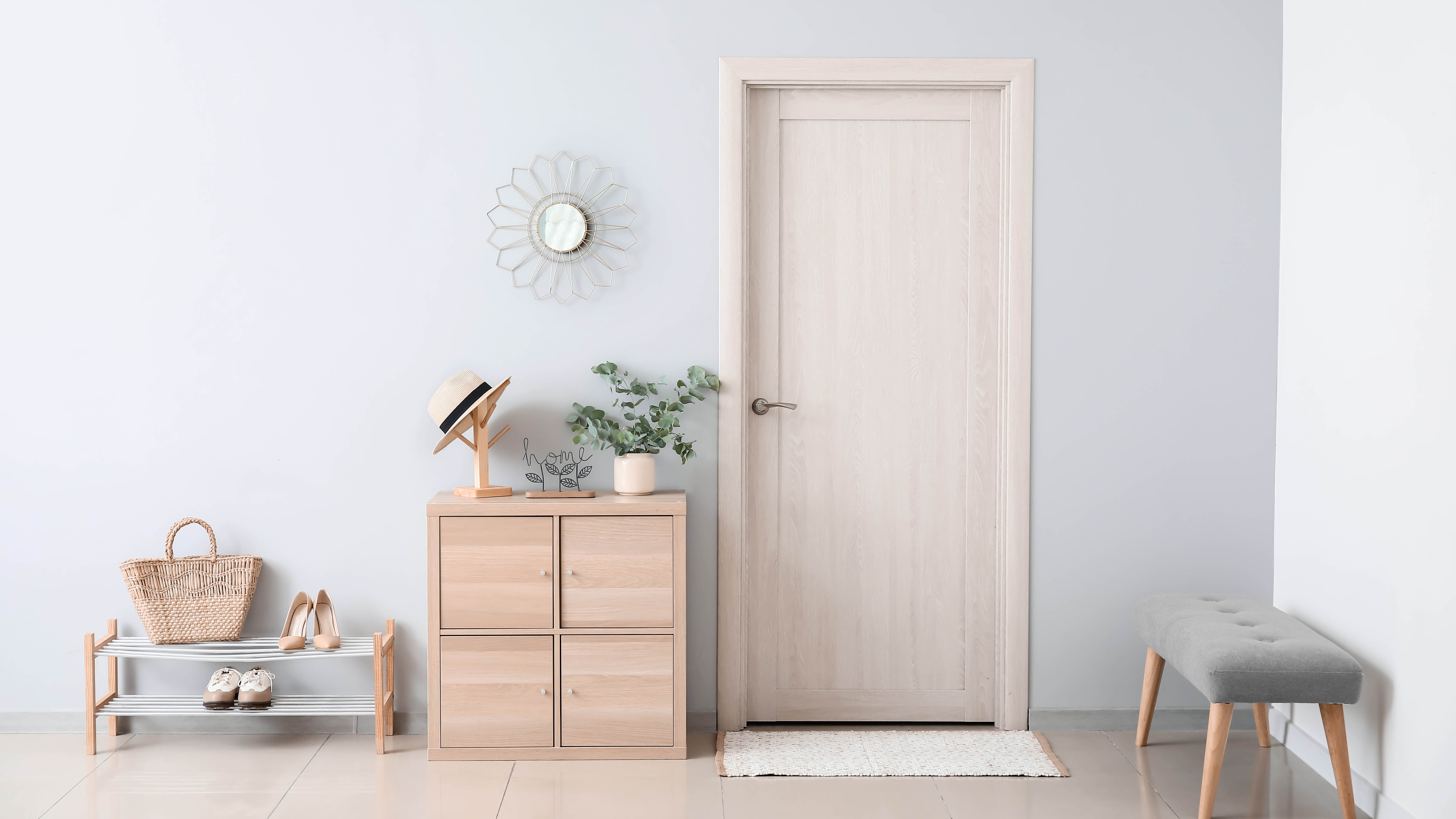
The first step you need to take is to find exactly where the noise is coming from and then figure out why it's squeaking. There are plenty of reasons a door can squeak and it’s important to figure out which problem you are dealing with.
The door could be misaligned on the frame, causing a grating noise similar to nails on a chalkboard. The noise could be from rotten or deteriorating wood that’s causing your door to move in directions that it normally shouldn’t. There’s even a chance that the hinges themselves have loosened over time and just need tightening or the door has swollen with water or humidity and just needs time to loosen up. Spraying oil or cleaning a door that’s fundamentally falling apart won’t solve your problem.
2. Determine the problem
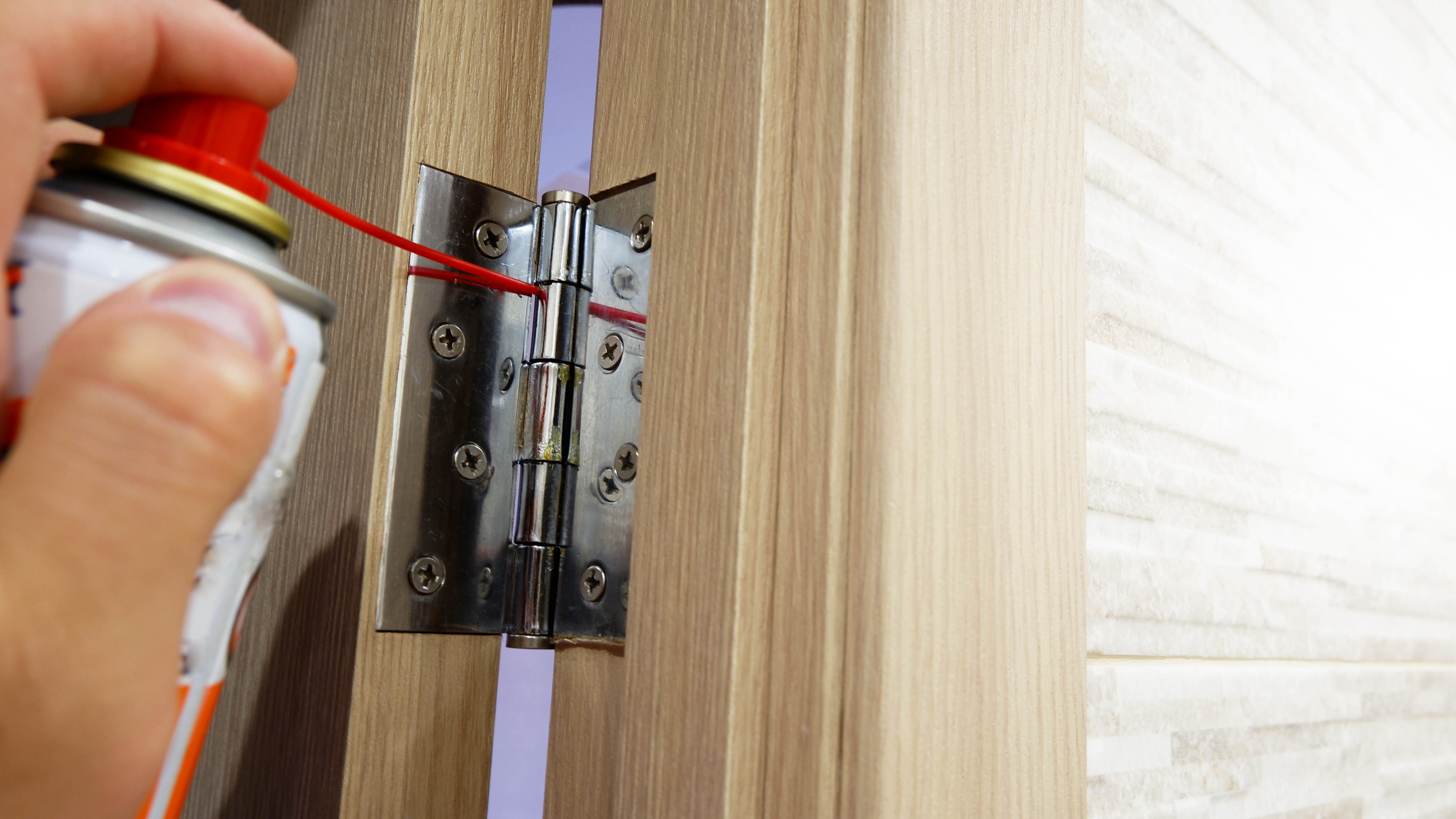
But if the foundation is solid and the door is clearly in the right place, then the hinge itself may be the reason you are hearing that awful symphony. So before you start anything else, make sure you know which hinge is the noisy culprit.
Once you have that down, it’s time to clean. Inspect the hinge for any rust, dirt, dust, or grime which could cause the noise. Try just wiping it down with a paper towel or applying some spray lubricant to see if that fixes the problem.
3. Remove the pin
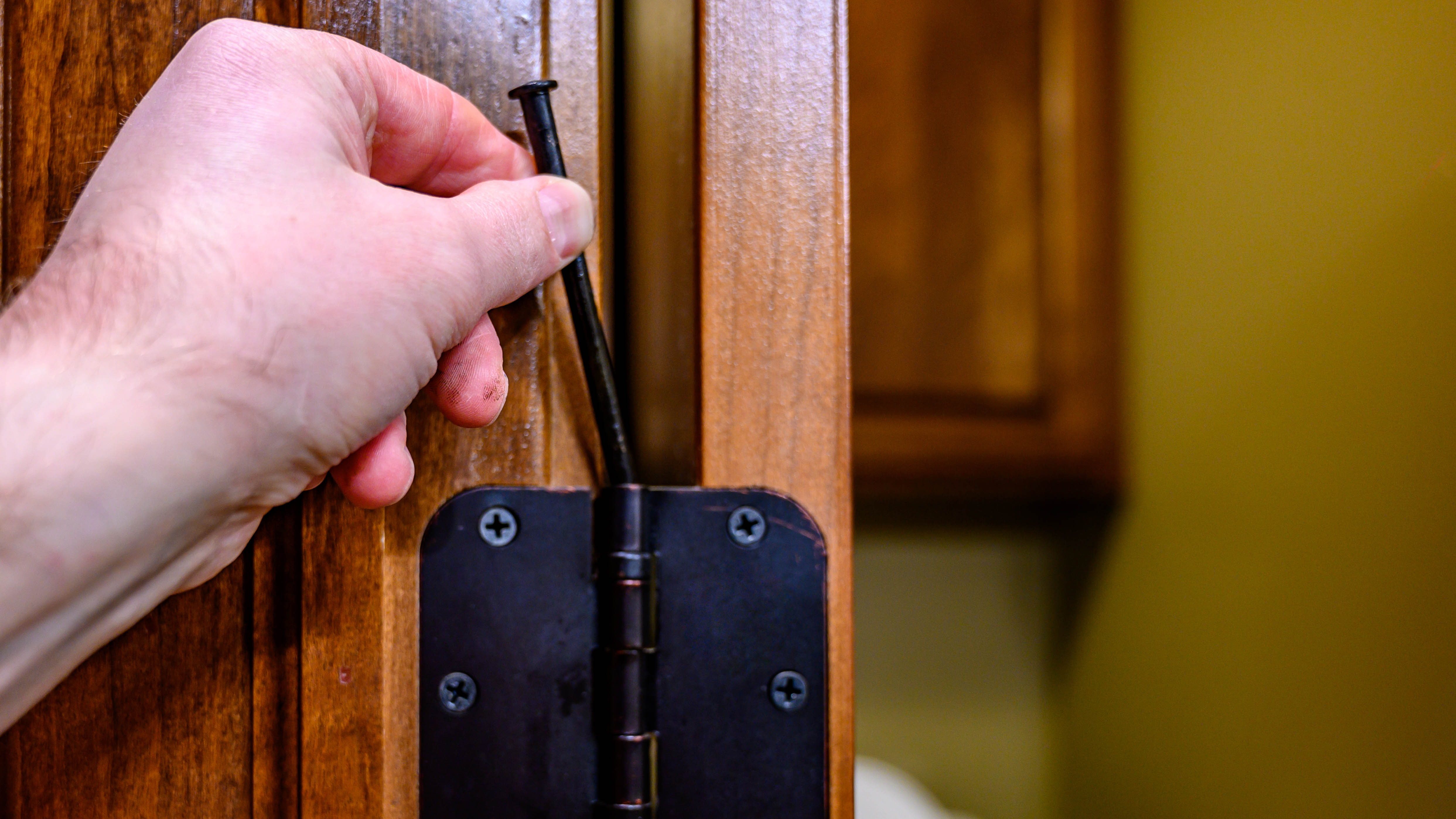
If the door is still making you feel like you are living in a haunted mansion, then it’s time to disassemble. Grab a hammer and place a nail at the bottom of the hinge. Gently tap the nail and the pin should slowly pop up.
Some hinges do have their pins at the bottom so you may have to reverse the process. Make sure you don’t remove every pin at the same time or your door will not have anything to hold onto and will flop over.
4. Clean your hinges
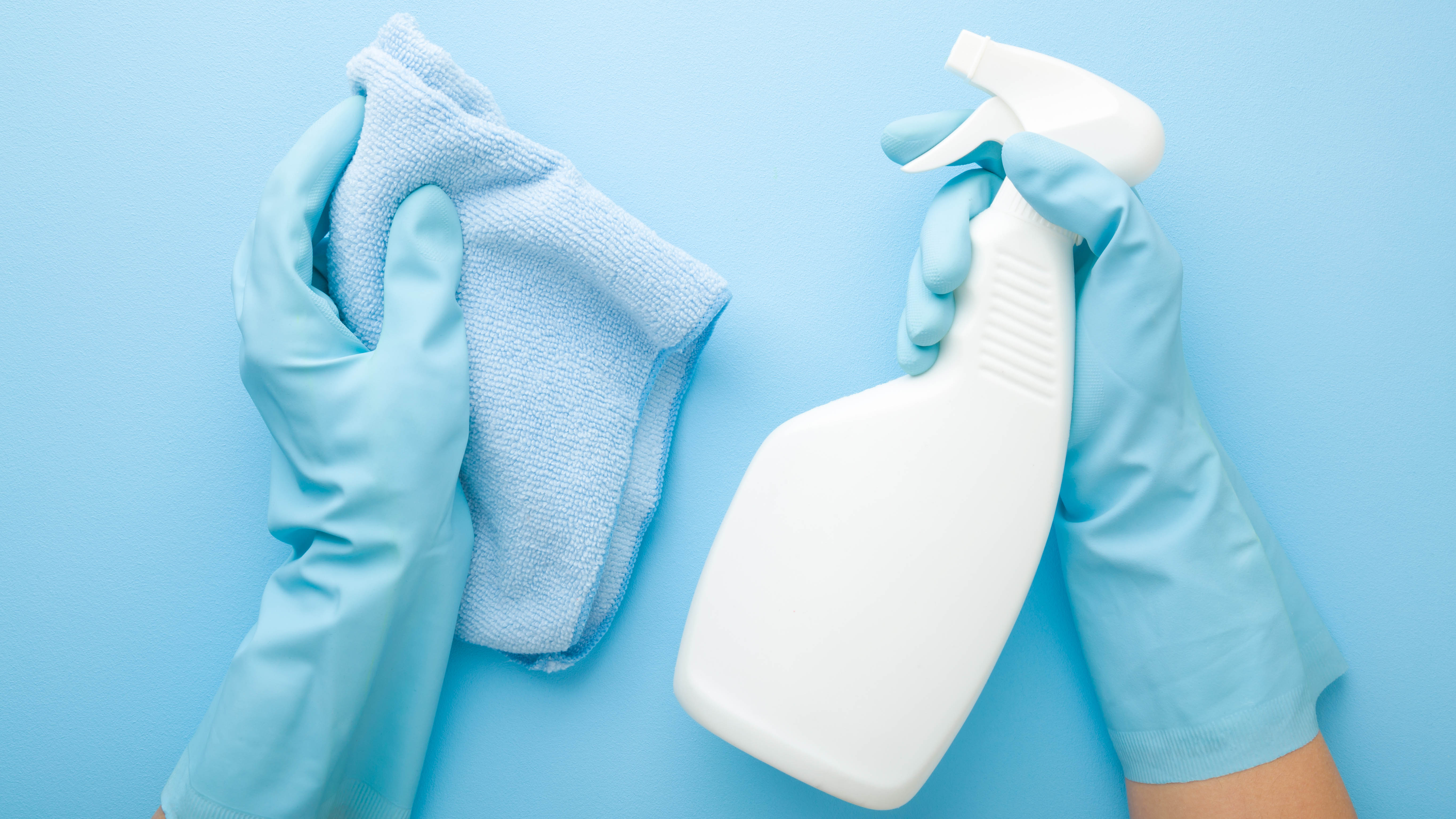
Once the pin has been removed, you should check the hinge and pin for any rust or dirt you missed before. If there’s any residual paint, now would be a great time to remove it with a proper cleaner.
Now that you have everything taken apart, you can use a diluted household cleaner to remove any rust, dirt, or dust that’s accumulated. To get inside the hinge, you can scrub inside with a cotton-tipped swab or anything small enough to reach.
5. Get the grease
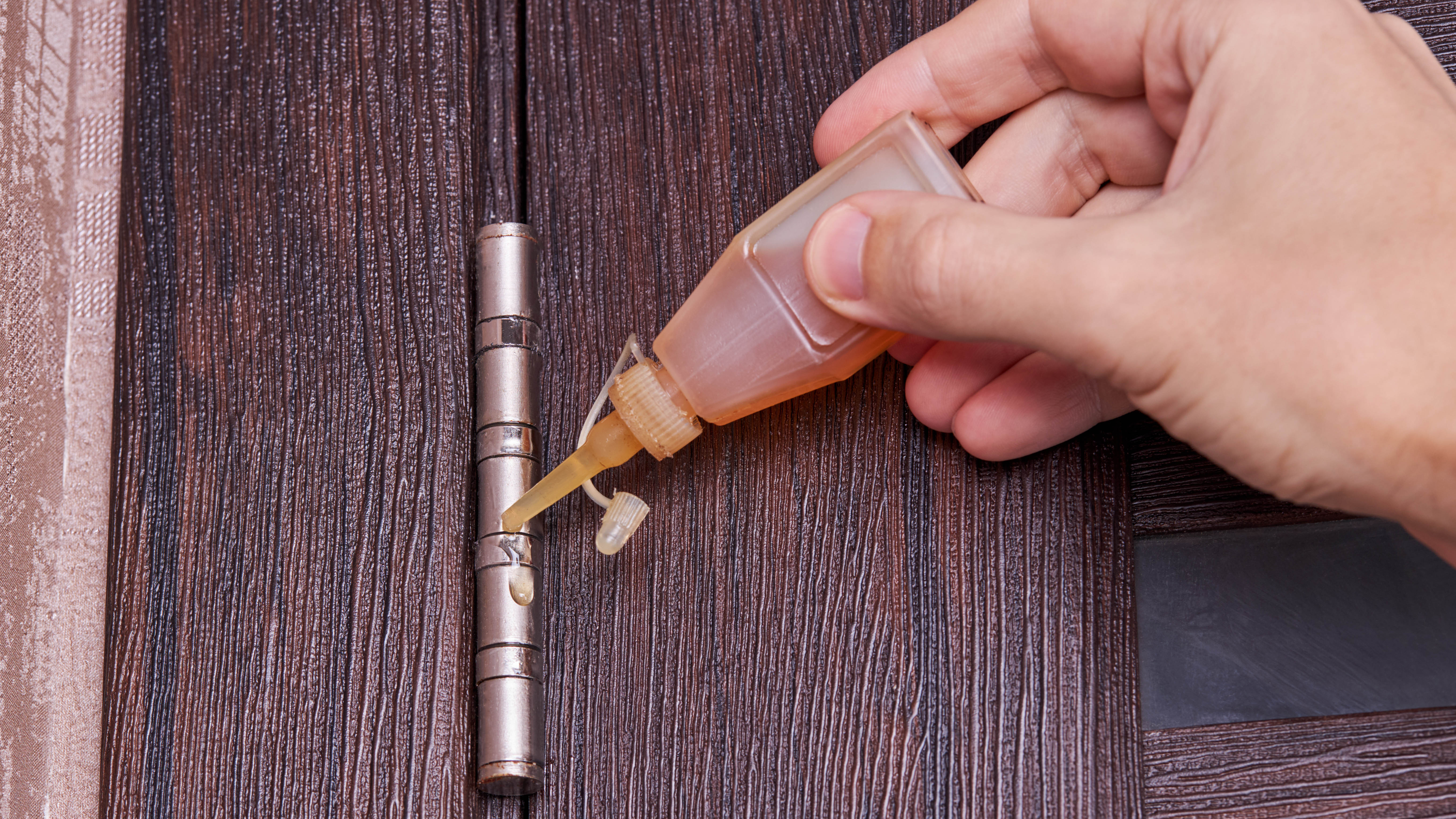
To make sure that the noise won’t just come back again, you can add a lubricant to help keep these joints fresh and safe. Any lubricant like lithium grease should do the trick. (While WD-40 is commonly thought of as an option, it's really meant to help get things unstuck, and is not a good long-term solution.)
Keep in mind that this remedy isn’t a permanent solution and the grease will eventually rub off after enough time. It’s why just putting the lubricant without proper cleaning will solve the issue in the short term, but the creak will continue coming back. With proper cleaning, your door should be able to last a lot longer without making any noise.
6. Put it all back together
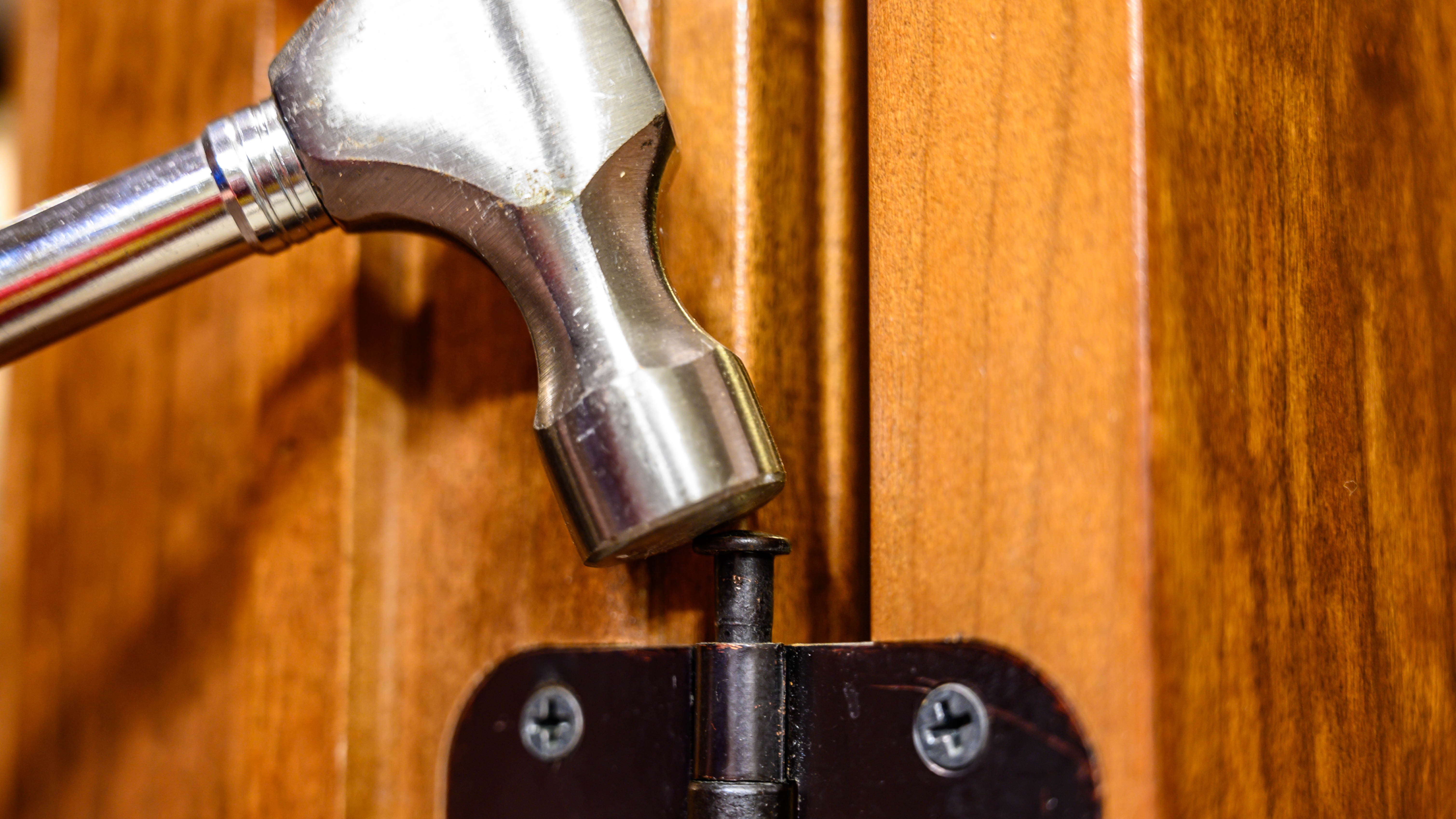
Once everything is greased and cleaned, it’s time to put the door back together. Gently place the pin back in the door hinge, making sure to place it in the same direction you took it out of. You may need to use a hammer to tap it just a bit to make sure the hinge is secure and won’t fall out of the hole.
Then, it’s best to wipe any of the excess grease to make sure that the area is clean and looking nice. Your door should now be squeak-free!
How to stop your door from squeaking in the future
- Clean consistently — If you can clean your door frame and its hinges, the squeaking should disappear.
- Just spray lubricant — If you don’t want to take the whole door apart, you can just spray a lubricant to get your door nice and loose. WD-40 is the most popular option, but you can use any petroleum-based spray. In a pinch, you can even use a spray-on deodorant to get the job done.
- Might be another problem — Your door might be squeaking for reasons outside the hinge. A door made of wood will rot over time, causing it to get loosened and less stable. This could also lead to the door not fitting properly in its frame or swelling and getting stuck.
- Get a new hinge — Your hinge may eventually become too corroded or rusted to be saved. If that happens, you may need to just get a new hinge and install it. That may be annoying, but it’s better than having to listen to a symphony of squeaks for the rest of your life.
- Replace the door — If all else fails, you may just have to get a new door. Fundamental problems may arise that some lubricant and a new hinge won’t fix.
More from Tom's Guide
- 9 things you should never clean with a pressure washer
- How to fix scratched wood floors to make them look like new
- 9 gross things you forget to clean around your home
Sign up to get the BEST of Tom's Guide direct to your inbox.
Get instant access to breaking news, the hottest reviews, great deals and helpful tips.
Steven Asarch is a writer and editor who lives on Twitch and YouTube. After graduating from Baruch College, he wrote for IBT Media, Newsweek and Insider. In 2021, he executive produced the docu-series "Onision in Real Life" on Discovery +. As someone always looking to have the best smelling apartment possible, he's made it his mission to find the best air purifiers out there. His home has since become an air purifier haven, having stored and tested ten models for over three months. You could say he now knows everything there is to know about air purifiers, and what separates the good from the best.

